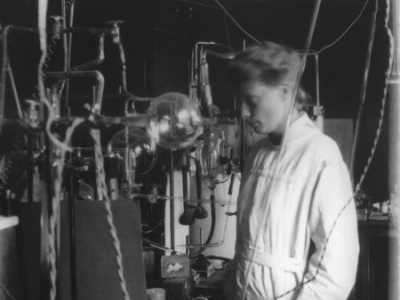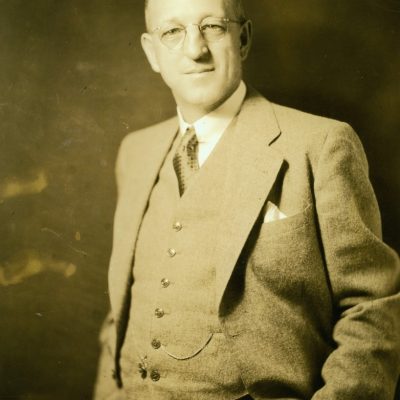A contemporary of Albert Einstein and one of Germany’s first female PhDs, Hertha Sponer was the first woman to join the physics faculty at Duke and a pioneering experimentalist in what is now called physical chemistry.
By the time the Nazis took power in 1932, Sponer had published 20 scientific papers and earned the right to teach in Germany as an associate professor of physics. But the Nazis held a dim view of women in science and she saw no future in staying. She moved first to Oslo, and then came to Duke in 1936 with support from the Rockefeller Foundation, which was helping displaced German scholars relocate.
Her specialty was spectroscopy, the study of matter using electromagnetic energies. Working in specially equipped, vibration-resistant space in the subbasement of the physics building, Sponer pioneered the field of “quantum chemistry,” and used it to experimentally confirm some of the strange predictions quantum theorists had offered.
She came to think of her work as “chemical physics” and became the associate editor of a journal by that name. “She acted as a liaison between these disciplines, because she was able to understand both the language of Physics and of Chemistry and to communicate in both of them,” according to a biography on the Duke Physics web site.
Sponer mentored 12 masters degrees and 23 PhDs at Duke, becoming an emeritus professor at age 70, and retiring to Germany in 1966. She died two years later. In 2001, the German Physical Society established the Hertha Sponer Prize, awarded every year to an early-career woman scientist.



